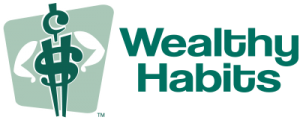
The “Wealthy Habits” programs are made possible by the Jonathan D. Rosen Family Foundation, a not-for-profit 501(c)(3). The Rosen Family Foundation is committed to providing individuals with the knowledge necessary to make sound financial decisions. This knowledge will improve their lives and ultimately their community. Without these essential skills, many will be ill-prepared to tackle the difficult economic road ahead. Learn more by visiting the JDRFF website.
Our Mission
"To provide the knowledge and tools needed to help create a lifetime of “Wealthy Habits.”
Why is financial literacy for our children important?
Imagine how life would be different if we had learned at an early age how to manage money wisely and invest it for the future.
Our next generation of adults (18- to 34-year-olds) are more likely to be less financially capable than our previous generations, with;
- 23% spending more than their household income
- 68% not having three months of expenses saved in case of an emergency
- 34% engaging in expensive, non-bank borrowing
- When asked 5 questions covering concepts of economics and finance expressed in everyday life, 50% of people had the wrong answers
- 44% of Americans don’t have enough savings or other liquid assets to stay out of poverty for more than three months if they lose their income
- 33% have no savings accounts at all
Why we teach financial literacy?
Too often, people aren’t taught how to accumulate assets – they are instead taught to merely get by. Seventy-seven percent of Americans live paycheck to paycheck at least part of the time. If these are the skills our children are being taught, we have little chance of a brighter tomorrow. Research suggests that familiarity with financial concepts is responsible for as much as 50% of the growing wealth gap. Knowledge and the ability to prepare for the future is key to the success of our children, regardless of their chosen field.
Can we count on families to teach our young population? We don’t ask parents to teach math and physics. Why should they be expected to teach financial literacy?
The sixth annual Financial Literacy Survey of adults, conducted in 2012 found that:
- 56% admit that they do not have a budget.
- One-third, or more than 77 million Americans, do not pay all of their bills on time.
- 39% carry credit card debt over from month to month.
- Two in five adults indicated that they are now saving less than they were one year ago and 39% do not have any non-retirement savings.
- 25% of those who do not currently have non-retirement savings indicated that, if they did begin to save, they would keep their savings at home in cash.
For information on Wealthy Habits' fun, practical, and interactive high school programs, please visit: http://wealthyhabits.org/high-school-2/